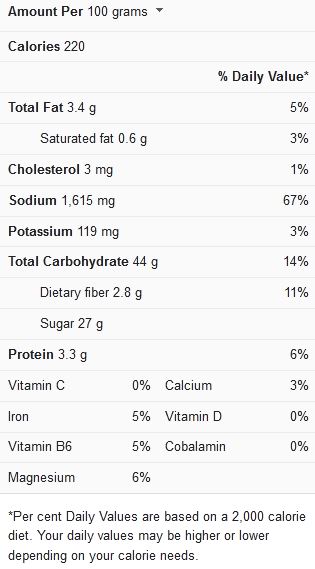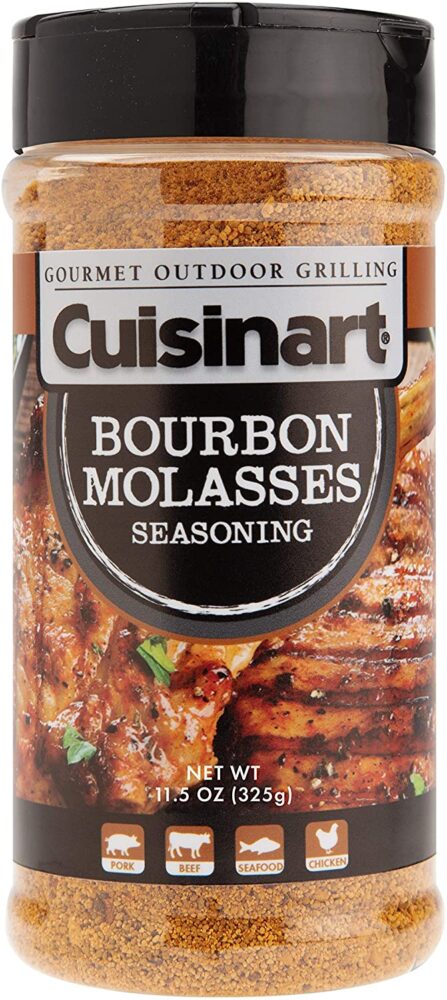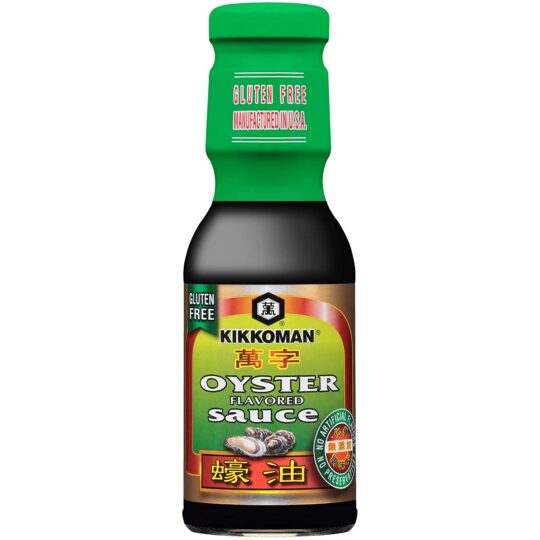Asian dishes have always had a special place in our hearts and taste buds. And we always wonder what makes their flavors stand out, whether it’s a bowl of Ramen Noodles or a plate of Kung Pao Chicken. With time, we’ve been able to identify the magic makers of these dishes, and one of them is hoisin sauce. Now, we can easily prepare our favorite Asian dishes right in our very kitchen.
But one day, you realize, right in the middle of a recipe, that your hoisin sauce bottle is exhausted. What do you do? Throw away the recipe because it can never be finished? Of course, not! Handy replacements for hoisin sauce can be source for in your kitchen at that very moment. But before you get to it, first understand why hoisin sauce holds such a complex flavor-infusing capacity.
Hoisin sauce nutrition facts

What is hoisin sauce?
Hoisin sauce is a condiment in Asian cuisine, specifically in Cantonese regions. It’s a dark, robustly fragrant sauce with a blend of umami and sweetness, combining ingredients like fennel, soybeans, garlic, and red chili pepper. Sometimes, varieties of hoisin sauce may contain five-spice powder, vinegar, and sugar. And its name is derived from the shortened Chinese term for seafood sauce, hoisin jeung, though the condiment isn’t typically eaten with seafood and doesn’t include any seafood ingredients.
Some hoisin sauce varieties may contain starches from rice, wheat, and sweet potatoes, while others also contain sesame seeds, preservatives, and coloring agents. But traditional hoisin sauce recipes are based on toasted and mashed soybeans. The sauce is renowned for its dense consistency, reminiscent of the American BBQ sauce. It’s why many experts suggest an easier way to understand the flavor profile of hoisin sauce is to imagine a sweet, tangy BBQ sauce infused with soy.
Uses of hoisin sauce in recipes
Hoisin sauce is mainly featured in Cantonese recipes, but numerous dishes from the American regions also use it. It commonly functions in dips and marinades for meat, fish, and vegetables. You’ll also find hoisin sauce in noodle soups and glazes, especially Vietnamese cuisine. And it regularly features stir-fry dishes, where it’s added to rice, ramen, vegetables, and cut pieces of beef, pork, or chicken.
Typical examples of recipes where hoisin sauce lends its sweet-tangy blend of flavors include;
- Chicken in Hoisin sauce
- BBQ pork spare ribs
- Baked pork egg rolls
- Noodles
- Chicken sliders
- Easy pork
- Mostly Mu Shu pork
- Indonesian shredded BBQ chicken
- Soups
- Beef and broccoli bowls
- Sauces
- Duck pancakes
- Baked chicken wings
- Wontons
- Chicken meatballs
- Grilled salmon
- Chicken skewers
- Pork tenderloin
- Asian meatballs
- Asian spring rolls
- King Pao chicken
- Glazes
- Crispy Asian pizza
- String beans
- Stir-fried pork
- Sous vide salmon
- Easy char Siu
- Crab in hoisin sauce
- Chicken and shiitake
- Braised short ribs
- Sirloin Tacos with beet salsa
- Slow cooker chicken
- Chinese BBQ ribs
- Asian salmon burgers
- Smoked duck
- Asian turkey meatloaf
- Braised pork shoulder
- Lo Mein
- Stir-fry vegetables
- Smoky grilled tofu
- Vegetable-stuffed chicken
- Deep-fried chicken
Substitutes for hoisin sauce
If you don’t have a bottle of hoisin sauce around or can’t rush out for a fresh supply, you can still find helpful substitutes in its place. It’s also handy when you can’t consume products containing soybeans or prefer a less robust-flavored alternative. Some fantastic examples of substitutes for hoisin sauce are listed here;
Sauce Teriyaki
Teriyaki sauce carries mild hints of umami that resemble hoisin sauce. But you can make it more like the Asian condiment by adding other ingredients. However, the key additions are garlic, five-spice powder, and vinegar, also found in common hoisin sauce varieties. Here’s what you’ll need;
- Three tablespoons teriyaki sauce
- Three tablespoons molasses
- Two tablespoons red wine vinegar
- Two teaspoons five-spice powder
- Two cloves, garlic
- Three-quarter cup drained and rinsed kidney beans
Combine these ingredients in a blender, and you’ll have an impressive hoisin sauce substitute to enjoy in most dishes.
Bbq-molasses mix
Since hoisin sauce is typically referred to as Chinese barbecue sauce, it’s logical that you should make a substitute using regular barbecue sauce. Both condiments share a sweet and tangy flavor profile, but BBQ sauce is thinner, which is where the molasses come in. Of course, this addition may push the taste to a sweeter angle, which is why five-spice powder will be added to the mix. And a bit of soy sauce brings more umami to the mix and a familiar soy taste as expected from real hoisin sauce.
To make it, combine;
- Three-quarter cup BBQ sauce
- Three tablespoons molasses
- One tablespoon soy sauce
- One and a half teaspoons five-spice powder
You may notice the mixture being thicker than regular hoisin sauce, but don’t worry. A bit of water will thin it out fine and bring it to the ideal consistency.
Oyster sauce
Not everyone has the time or patience to make substitutes out of home ingredients, and if you’re one of such, this option is for you. Oyster sauce is great for replacing hoisin sauce as it combines soy, sugar, and salt with caramelized oyster juice. And though the oyster sauce is sweeter, it’ll still work in most cases.
Use the oyster sauce in stir-fry dishes and seafood recipes, and it’ll give you a decent result. Of course, it’s not a vegan option but works in other diets and at a 1:1 ratio.
Frequently asked questions (FAQs)
Can I use kecapmanis instead of hoisin sauce?
Kecapmanis or sweet soy sauce is sweeter than hoisin sauce. But if this won’t be an issue in your recipe, you can consider it a replacement. The Indonesian sauce is a versatile ingredient that substitutes most Asian condiments of similar composition, such as hoisin, soy, and oyster sauce.
Can I substitute worcestershire sauce for hoisin sauce?
Worcestershire sauce works in a pinch, but note that they aren’t similar. The main feature they share is a blend of sweet and umami flavors. But Worcestershire sauce has a thinner consistency and a fruitier taste than hoisin sauce.
Can I substitute fish sauce for hoisin sauce?
Yes, it’s possible to use fish sauce as a hoisin sauce substitute. But note that while it shares a similarly sharp and salty flavor, fish sauce isn’t sweet. So, address this lack by adding a few teaspoons of sugar or honey to the mix, so the flavor comes close.
Conclusion
Hoisin sauce remains one of the essential condiments for making authentic Asian cuisines. But when you can’t get your hands on a bottle, it helps to know the right substitutes to select. Here, we’ve listed a handful of impressive condiments that share its blend of sweet and salty flavor. And with them, you get more flexibility, allowing you to explore more flavor possibilities in familiar dishes. So, please give them a go and don’t forget to enjoy the process.



